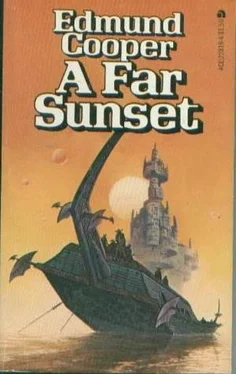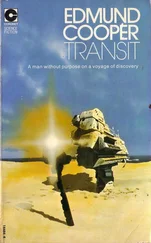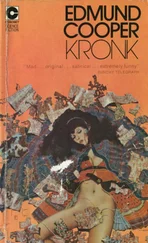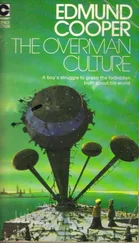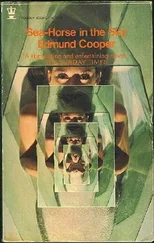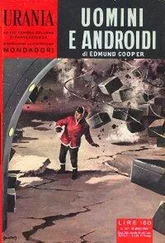And, in fact, he was now riding through a green tunnel; for the banks of the Canal of Life had narrowed considerably. The foliage had closed in overhead, and sunlight was visible only as a dazzling maze of thin gold bars through which the barge seemed to cut its way with miraculous and hypnotic ease.
As the light died, and the green gloom deepened, Shon Hu inspected the banks for a suitable place to moor the barge for the night.
‘Lord,’ he said, ‘we have made good travelling. We are very near now to the Watering of Oruri.’
‘Would it not be good to journey on to the great river while we can still see?’
Shon Hu shrugged. ‘Who can say, lord? But my comrades like to see where they can plant their poles.’
‘That is very wise, Shon Hu. Therefore let us rest.’
They found a small patch of ground near a group of the Weeping Trees. Shon Hu explained that most animals could smell the trees—particularly at night—and took great trouble to avoid them. That was why he had chosen the place. Nevertheless, he advised that everyone should sleep in the barge.
The first night passed without incident. After their evening meal the hunters began to exchange stories, as was their custom. Paul listened drowsily for a while, half drugged by the heavy night scents of the forest and the vapours rising from the water. The next thing he knew, it was daybreak—and a smiling Zu Shan was trying to tempt him with a handful of kappa and a strip of smoked meat that tasted like scorched rubber.
‘You slept very soundly, Paul. We did not think you would take to the forest so well. How do your bones feel?’ Zu Shan spoke in English, proud of the one distinction over the hunters that he possessed.
Paul groaned and tried to stretch. He groaned again—this time with much feeling. ‘I feel like an old man,’ he complained. ‘I feel as if the glue from the Weeping Trees had penetrated all my joints.’
‘It is the vapours from the water of the Canal of Life,’ explained Zu Shan. ‘They cause the bones to ache, but the pain passes away with vigorous movement. Poor Nemo feels it worst, I think, because his bones do not have their natural shape.’
Little Nemo was crying like a baby. Paul picked him up and began to gently massage the twisted limbs. ‘Lord,’ gasped Nemo in Bayani, ‘you shame me. I beg of you, put me down.’
Paul ruffled his hair affectionately and set him down in the stem of the barge. ‘It shall be as my son commands,’ he said gravely, ‘for I acknowledge before all present that you are truly my son.’
‘Lord,’ said Shon Hu, ‘there is much poling to be done. Will you speak the word?’
Paul raised his eyes to the steaming green roof overhead. Judging from the already oppressive atmosphere, it was going to be another hot and enervating day.
‘Let us go, then,’ he said in Bayani, ‘with the blessing of Oruri.’
It was on the second night that disaster struck.
The Watering of Oruri was a broad, slow river, fairly shallow but easily navigable. Were it not for the mild current, the pole-men would have had an easier job propelling their craft up the river than along the Canal of Life.
To Paul, it seemed that there could be no end to this strange journey back in time—at least, not until they arrived at the very fount of creation. Baya Nor was less than two days’ travel away; yet already it belonged to another world—a world that, fancifully, seemed as if it would not begin to exist until hundreds of millennia had passed.
It was strange, this sense of journeying back in time. He had experienced the same sort of sensations in the donjons of Baya Nor and in the temple when Enka Ne had granted him his life but had commanded that each of his litde fingers be struck off.
In a sense, perhaps, he really had journeyed back in time; for he had left the twenty-first century on Earth to travel many light-years and enter a medieval society on the ‘far side of the sky’. But now, as he and his companions propelled themselves up a great musky river, flanked by high green walls of overpowering vegetation, even Baya Nor seemed ultra-modern.
The world he was in now seemed as if it had yet to experience the intrusion of man. The voyagers in their frail craft were nothing more than insubstantial dreams of the future, flitting like brief shadows through the long morning of pre-history.
They made camp for the night close by a mossy patch of ground that seemed both incongruous and refreshingly peaceful in the surrounding riot of green.
Life was lived at such a primitive and furious level in the forest through which the Watering of Oruri passed that Paul thought he could actually see plants growing. Oddly enough, although the trees and tree-ferns were much taller here than in the stretches of forest on each side of the Canal of Life, the gloom was not quite so unrelieved. Here and there, broad shafts of dying sunlight broke through the great green roof of foliage to create an odd impression of stained glass illumination in. an endless green cathedral.
As he gazed idly at the river bank, tiny flowers closed their petals and almost shrank into the ground as if they were unwilling to witness the dark happenings of the long forest night.
Again the small band of explorers slept in their barge. As on the previous night, the hunters exchanged their stories— which, thought Paul, had much in common with the traditional anecdotes of fishermen back on Earth. He was less sleepy this time and managed to stay awake until one of the hunters took the first spell of the night watch. Then, with the sweeper rifle ready in his hand, he drifted luxuriously into a dark dimension of dreams that seemed strangely attuned to this world of pre-history.
It took several vital seconds for him, when the tragedy happened, to force himself back into consciousness. At first, the cries and the roars and the stench seemed to be part of the dream; but then the barge received a mighty blow and lurched violently. Paul rolled over, realized that he was awake and that the pandemonium was real.
He groped desperately for the sweeper rifle. Fitted along its barrel was a small atomic-powered pencil-beam torch, set parallel with the sights. It was his only source of light. Until he could find it and operate it, he could not possibly discover what was happening. The stench was terrible; but the screams were indescribable.
Frantically, he groped for the rifle. A century seemed to pass before he found it. He felt for the torch button and pressed it as he swung the rifle towards the sound of screaming.
The thin beam of intense light did not illuminate a wide area; but it revealed enough to turn his stomach to jelly.
There, on the bank of the river, was the largest and most terrible creature he had ever seen. As large, perhaps, as the prehistoric tyrannosaurus rex of Earth, and certainly no less terrible.
He swung the torch beam up towards the massive and nightmarish head—then almost dropped the rifle in sheer terror. The head, arms and shoulders of one of the hunters protruded from a cavernous mouth.
Instantly, Paul swung the rifle away from the head, down the great curved back to where he judged the creature’s belly must be. He pressed the trigger. Blue light shot through the darkness, parallel to the white light of the torch.
Added to the stench of the monster itself there was now the stench of its burning flesh. The fantastic creature seemed to be more surprised than hurt. With a casual and strangely delicate movement, it raised a great forearm and plucked the hunter from its mouth, flinging the body far out into the Watering of Oruri.
Then, with an almost comical calmness, it began to contemplate the unusual phenomenon of the blue and white beams of light. By that time the creature’s stomach was burning, with the flesh sizzling and spitting. Gouts of flaming body fat fell to the ground; and smoky yellow flames curled up the high, scaly back.
Читать дальше
